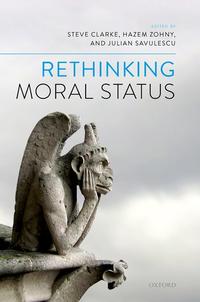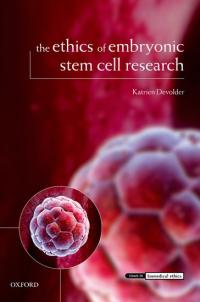Cloning and Stem Cell
Human embryonic stem cells are stem cells that are derived from the developing human embryo. They are most useful in research because of their ability to change into any type of cell, tissue or organ in the human body – that is, their pluripotency. As such they can be used in the treatment of a very large number of conditions. The main ethical issues arise from their source – donated embryos, most often left over from the IVF process.
Non-embryonic stem cells are stem cells that are not derived from an embryo. Two examples of these are cord-blood stem cells and induced pluripotent stem cells. Because they are not derived from embryos there is substantially less moral controversy about the use of these stems cells in research. However, there are limits to the use of non-embryonic stem cells. First, for all but induced pluripotent stem cells, other stem cells are not as versatile as the embryonic version and so they cannot give rise to the same range of human cells; and second, they do not help with research that is aimed at understanding the developmental mechanisms involved in these processes.
Admixed human embryos are a range of ‘combined’ human-animal embryonic cells. The most commonly used in research are ‘cybrids’. Cybrids are made by inserting the nucleus of a human cell into an animal egg from which the nucleus has been removed. They are useful in research because they are an easy way to create embryos so that the understanding and control of human embryos and development can be understood. Chimeras are usually formed by merging human and animal embryos whilst hybrids have human and animal chromosomes. The most common objection to these techniques involves claims about interfering with nature – by creating ‘half-human, half-animals’. A further objection points to the lack of dignity associated with the creation of these embryos. Such an objection relies on a particular conception of the moral status of the embryo.
Therapeutic cloning is cloning that is aimed at producing stem cells, tissue or organs for the therapeutic use of the individual from whom they are cloned. The advantage of therapeutic cloning is that the stem cells or other tissue created will have matched DNA to the recipient and so there will be little risk of tissue rejection. The main ethical issue associated with therapeutic cloning is that it requires the creation and destruction of an embryo, which on some views on the moral status of embryos is wrong.
Research outputs and media
Books

|
Rethinking Moral StatusClarke, S., Zohny, H., and Savulescu, J., (2021), 'Rethinking Moral Status', (Oxford University Press) The first volume of its kind to consider how scientific and technological advancements impact our thinking about moral status Explores how both current and future developments — from human brain organoids and artificial intelligence, to cyborgs and post-humans — may challenge ideas about moral status Presents original ideas and discussion from leading philosophers and bioethicists Common-sense morality implicitly assumes that reasonably clear distinctions can be drawn between the "full" moral status that is usually attributed to ordinary adult humans, the partial moral status attributed to non-human animals, and the absence of moral status, which is usually ascribed to machines and other artifacts. These implicit assumptions have long been challenged, and are now coming under further scrutiny as there are beings we have recently become able to create, as well as beings that we may soon be able to create, which blur the distinctions between human, non-human animal, and non-biological beings. These beings include non-human chimeras, cyborgs, human brain organoids, post-humans, and human minds that have been uploaded into computers and onto the internet and artificial intelligence. It is far from clear what moral status we should attribute to any of these beings. There are a number of ways we could respond to the new challenges these technological developments raise: we might revise our ordinary assumptions about what is needed for a being to possess full moral status, or reject the assumption that there is a sharp distinction between full and partial moral status. This volume explores such responses, and provides a forum for philosophical reflection about ordinary presuppositions and intuitions about moral status. Visit OUP website for further details. ISBN: 9780192894076 |
 |
The Ethics of Embryonic Stem Cell ResearchDevolder, K., (2015), 'The Ethics of Embryonic Stem Cell Research', Oxford University Press) Embryonic stem cell research holds unique promise for developing therapies for currently incurable diseases and conditions, and for important biomedical research. However, the process through which embryonic stem cells are obtained involves the destruction of early human embryos. Katrien Devolder focuses on the tension between the popular view that an embryo should never be deliberately harmed or destroyed, and the view that embryonic stem cell research, because of its enormous promise, must go forward. She provides an in-depth ethical analysis of the major philosophical and political attempts to resolve this tension. One such attempt involves the development of a middle ground position, which accepts only types or aspects of embryonic stem cell research deemed compatible with the view that the embryo has a significant moral status. An example is the position that it can be permissible to derive stem cells from embryos left over from in vitro fertilisation but not from embryos created for research. Others have advocated a technical solution. Several techniques have been proposed for deriving embryonic stem cells, or their functional equivalents, without harming embryos. An example is the induced pluripotent stem cell technique. Through highlighting inconsistencies in the arguments for these positions, Devolder argues that the central tension in the embryonic stem cell debate remains unresolved. This conclusion has important implications for the stem cell debate, as well as for policies inspired by this debate. Visit OUP website for further details. ISBN: 9780199547999 |
Journal articles and papers
Pugh, J., (2014), 'Embryos, The Principle of Proportionality, and the Shaky Ground of Moral Respect', Bioethics, Vol: 28(8): 420–426.
Pugh, J., (2014), 'Concerns About Eroding the Ethical Barrier to in Vitro Eugenics: Lessons from the hESC Debate', Journal of Medical Ethics, Vol: 40(11): 737-738.
Douglas, T., Harding, C., Bourne, H. and Savulescu, J. (2012). 'Stem Cell Research and Same-Sex Reproduction'. in M. Quigley, S. Chan and J. Harris, (Eds.) Stem Cells: New Frontiers in Science and Ethics (World Scientific) pp 207-228.
Mathews, D., Donovan, P., Harris, J., Lovell-Badge, R., Savulescu, J. and Faden, R. (2009), 'Pluripotent Stem Cell-Derived Gametes: Truth and (Potential) consequences', Cell Stem Cell, Vol: 5(1) pp. 11-14
Savulescu, J. and Lott, J. P. (2007), 'A Response to Commentators: "Towards a Global Human Embryonic Stem Cell Bank"', American Journal of Bioethics, Vol: 7 pp. W4- W6
Savulescu, J. and Lott, J. P. (2007), 'Towards a Global Embryonic Stem Cell Bank', American Journal of Bioethics, Vol: 7 pp. 37
Savulescu, J., Saunders, R., (2006) The Hinxton Group Considers Transnational Stem Cell Research, Hastings Centre Report, Volume 36, No.3.
Savulescu, J., Devolder, K., (2006), A Defence of Stem Cell and Cloning Research, published as 'The Moral Imperative to Conduct Stem Cell and Cloning Research', in Cambridge Quarterly of Healthcare Ethics 15 (1) pp 7 - 21
Liao, S. M. (2005), 'Response to Commentators on "Rescuing Human Embryonic Stem Cell Research: The Blastocyte Transfer Method"', American Journal of Bioethics, Vol: 5(6) pp. 10-13 Savulescu, J. and Saunders, R. (2008), 'Research Ethics and Lessons from Hwanggate: what can we learn from the Korean cloning fraud?' Journal of Medical Ethics, Vol: 34 pp. pp. 214 - 221
Savulescu J. (2005) ‘The ethics of cloning’. Medicine; 33:2: 18-20
Savulescu J. (2004) Embryo Research: Are There Any Lessons from Natural Reproduction? Cambridge Health Care Quarterly; 13(1):68-75.
Savulescu J, Harris J.(2004) ‘The Creation Lottery: Final Lessons From Natural Reproduction: Why Those Who Accept Natural Reproduction Should Accept Cloning and Other Frankenstein Reproductive Technologies ’.Cambridge Quarterly of Health Care Ethics;13(1):90-5.
Savulescu, J., (2002) The Embryonic Stem Cell Lottery and the Cannibalization of Human Beings, Bioethics 16 pp. 508- 529
Savulescu, J.,(2000),The ethics of cloning and creating embryonic stem cells as a source of tissue for transplantation: time to change the law in Australia. Australian and New Zealand Journal of Medicine, 30:492-8.
Wilkinson, D., (2016), Interview on HFEA decision to approve 'three-person baby’ mitochondrial transfer in UK, Al Jazeera English news channel (15 December 2016).
Sandberg, A., (2014). "HowTheLightGetsin: Planet of the Clones". Hosted by Barnaby Martin. Human cloning is anathema to most of us conjuring up Metropolis visions of identical humans serving tyrannical masters. But might this be a mistaken horror story? Could human cloning instead lead to medical breakthroughs and the end to infertility? The Panel: Dolly the Sheep embryologist Sir Ian Wilmut, outspoken Oxford bioethicist and transhumanist Anders Sandberg and radical sociologist Hilary Rose seek out new life.
Levy, N., (2013). "Caveman ethics? The rights and wrongs of cloning Neanderthals" The Conversation (26 January). http://theconversation.com/caveman-ethics-the-rights-and-wrongs-of-cloning-neanderthals-11761
Savulescu, J. and Powell, R., (2013), 'Mammoth cloning: the ethics'. The Conversation(reproduced on the BBC's Religion and Ethics website) ( 24 July)
Savulescu, J. (2008), Game of Life. Sydney (27 January)
Savulescu, J. (2008), Changing the Nature of Human Beings. Sydney
Savulescu, J. (2006), Stem Cell Scientists and the Law. (22 August)
Savulescu, J. (2006), Australia Human Cloning Vote Saw "Con Science" Crush Conscience. Dr David Van Gend (11 December)
Savulescu, J. (2006), Prominent cardinal attacks science behind stem cells. (11 July)
Savulescu, J. (2006), Religous row over stem cell work. (8 July)
Savulescu, J. (2006), Stem Cell Scientists Draw up Ethical Charter. Article on Hinxton Group (25 February)
Savulescu, J. (2006), Conflicting laws hinder research. Report on the formation of the Hinxton Group and the Conference on Transnational Cooperation in Stem Cell Research (25 February)
Savulescu, J. (2005), How Will History Judge Cloning, Times Higher Education Supplement, 6 May




